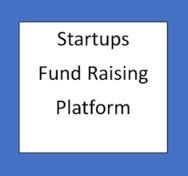Introduction
One name stands out as a symbol of innovation and disruption in the rapidly changing world of entrepreneurship and technology: Y Combinator. Y Combinator, frequently referred to as YC, was established in 2005 by Paul Graham, Jessica Livingston, Robert Morris, and Trevor Blackwell. Since then, it has developed into one of the most well-known startup incubators and accelerators in the world. YC has been instrumental in reshaping the tech sector and beyond with its distinctive model of offering finance, mentorship, and tools. This article dives into Y Combinator’s incredible journey so far and the various industries it works in.
How Y Combinator Began
With the straightforward but effective goal of giving early-stage startups the tools and support they need to turn their concepts into profitable businesses, Y Combinator was founded. The founders came to the conclusion that many promising firms lacked the assistance they required to successfully negotiate the perilous seas of entrepreneurship. As a result, Cambridge, Massachusetts—a city known for its eclecticism—is where Y Combinator was first established.
YC started off with a special strategy for encouraging innovation. It provided selected entrepreneurs a little amount of financing in exchange for a tiny equity stake rather than typical funding. More crucially, YC gave founders access to a close-knit group of like-minded businesspeople, a network of seasoned mentors, and a planned three-month programme to hasten their growth.
Y Combinator Industries Cover
The flexibility of Y Combinator to adapt and diversify across a wide range of businesses is one of its most impressive features. YC’s portfolio has grown over time to include a staggering variety of industries, reflecting the ever expanding frontiers of innovation. Here is a look at some of the major sectors that Y Combinator has entered:
Technology and software startups are the foundation of YC. Dropbox, Airbnb, Reddit, and Coinbase are just a few of the well-known tech companies that were launched thanks in large part to YC. It continues to assist entrepreneurs working on cutting-edge technology like artificial intelligence and software solutions.
Healthcare and Biotech: Y Combinator regularly invests in businesses working on medical devices, pharmaceuticals, digital health platforms, and genomics because it recognises the revolutionary potential of innovation in healthcare. YC’s funding and mentoring have aided businesses like 23andMe and Gingko Bioworks.
Fintech: YC has not been left behind in the financial technology sector’s tremendous expansion. Under YC’s leadership, fintech startups like Stripe and Brex have prospered, revolutionising banking, payments, and financial services.
Marketplace and e-commerce: YC has significantly influenced the e-commerce environment. In large part because of YC’s support, businesses like DoorDash, Instacart, and Shopify have disrupted traditional retail and produced new marketplaces.
Education: Y Combinator has supported businesses aimed at transforming education as edtech has grown in significance. The way that people access and participate in learning opportunities is changing because to startups like Lambda School and Outschool.
Mobility & transportation: YC-backed firms in this field, such Cruise and DoorDash (in the delivery industry), have been at the vanguard of the mobility revolution, creating autonomous vehicles and redefining the future of transportation.
Hardware and Robotics: Y Combinator has expanded its focus beyond software to include the hardware and robotics industries. Pebble is an example of a company that exemplifies YC’s support for hardware innovation. Pebble produced a revolutionary smartwatch.
Climate change and sustainability: YC has diversified into cleantech and sustainability in response to the escalating climate problem. Tech companies like Carbon Engineering are developing solutions to the climate crisis.
A Diverse Portfolio of Successes from Y Combinator
Numerous success stories that have transformed sectors, added employment, and produced significant economic value have characterised Y Combinator’s history. Here are some prominent YC graduates and their influence on the related industries:
Since its founding in 2008, Airbnb has revolutionised travel by providing distinctive housing opportunities all around the world. It became well-known and a representation of the sharing economy.
Dropbox: Established in 2007, Dropbox streamlined file sharing and storage, making it a crucial tool for people and companies all around the world.
The social media behemoth Reddit emerged from YC’s first-ever cohort in 2005. One of the most important online groups, Reddit now has an impact on everything from news to internet culture.
DoorDash: supported by YC DoorDash upended the meal delivery market by making it easier to get food from restaurants and fostering the gig economy.
Established in 2010, Stripe revolutionised online payments by streamlining the procedure for companies and developers all over the world.
Coinbase: Coinbase’s journey, which started in YC’s 2012 batch, has aided in the mainstream adoption of cryptocurrencies and made it a well-known brand in the industry.
During the COVID-19 pandemic, Instacart’s grocery delivery service saved many people’s lives, demonstrating the usefulness of their platform.
Gingko Bioworks: Using the power of synthetic biology, Gingko Bioworks creates useful compounds from valuable organisms, ranging from medications to fragrances.
By providing income-share agreements for coding bootcamps, Lambda School makes education more accessible and in line with desired professional aspirations.
Carbon Engineering is a cleantech business that is working to combat climate change by creating cutting-edge methods of removing carbon dioxide from the environment.
Beyond these success stories, Y Combinator’s influence is felt by thousands of firms that went on to secure significant funding, upend their sectors, and influence history.
How Y Combinator Worked
Y Combinator’s intensive three-month accelerator programme is the key to its success. Selected businesses are given an initial investment, usually in exchange for equity, as well as a variety of resources, such as office space, mentorship opportunities, and monthly meals with influential people in the IT industry.
Demo Day, the program’s culmination, sees each firm present its achievements and future plans to an audience of investors. Demo Day is a crucial time for fundraising since it frequently leads to additional investments from venture capital companies eager to support deserving YC alumni.
A close-knit network of founders, graduates, mentors, and partners makes up the Y Combinator community. This network, which provides support, contacts, and expertise, is essential in assisting startups in navigating the difficulties of becoming an entrepreneur.
The Development and Expansion of Y Combinator
Since its founding, Y Combinator has developed continuously to keep up with the shifting environment of innovation and entrepreneurship. Its main strength is its adaptability. Following are a few significant advancements and extensions in YC’s journey:
Startup School is a free online course that YC created in 2017 for early-stage innovators all around the world. It offers accessibility to information, guidance, and a worldwide community.
NOTE: Obtain further insights by visiting the company’s official website, where you can access the latest and most up-to-date information: Website: https://www.ycombinator.com/

